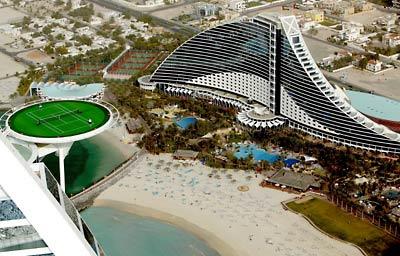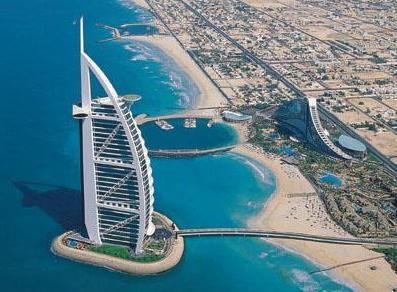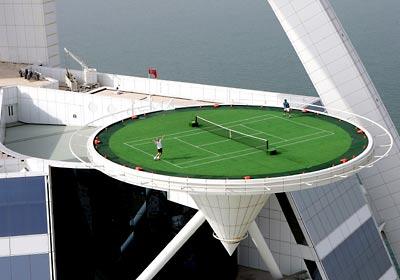The Burj Al Arab is one of the
world’s most luxurious hotels and is located in Dubai, United Arab
Emirates. Burj Al Arab is managed by the Jumeirah Group and built by
Said Khalil. Burj Al Arab’s stands at a height of 333m. The Burj Al Arab
stands on an artificial island 280 metres (919 ft) out from Jumeirah
beach, and is connected to the mainland by a private curving bridge.

The construction of Burj Al Arab
began in 1994. It was built to resemble the sail of a dhow, a type of
Arabian vessel. Two “wings” spread in a V to form a vast “mast”, while
the space between them is enclosed in a massive atrium. Architect Tom
Wright said “The client wanted a building that would become an iconic or
symbolic statement for Dubai; this is very similar to Sydney with its
Opera House, or Paris with the Eiffel Tower. It needed to be a building
that would become synonymous with the name of the country.” The
architect and engineering consultant for the project was Atkins, the
UK’s largest multidisciplinary consultancy. The hotel was built by South
African construction contractor Murray & Roberts. The hotel cost
$650 million to build.

The foundation used in this hotel
is Pile Foundation and a total of 230 - 40 meter long concrete piles
were drived into the sand. The foundation is held in place not by
bedrock, but by the friction of the sand and silt along the length of
the piles. Engineers created a surface layer of large rocks, which is
circled with a concrete honey-comb pattern, which serves to protect the
foundation from erosion. It took three years to reclaim the land from
the sea, but less than three years to construct the building itself. The
building contains over 70,000 cubic meters of concrete and 9,000 tons
of steel.
The tennis court at the top of the hotel


No comments:
Post a Comment